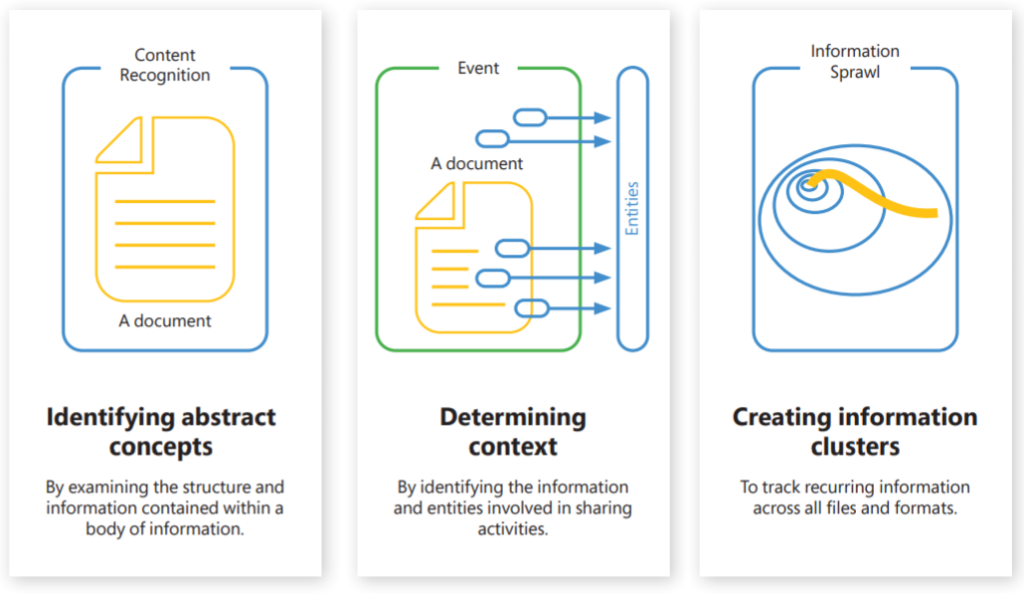Published Sep 09, 2021
What is Information Intelligence?

Today, the focus of most data mapping and governance tools is on Information Discovery. This method relies on the recognition of regular expressions, such as PII or financial indicators, and primarily aims to protect data addressed by existing regulations. However, in reality these indicators make up less than 10% of all sensitive business information. Cognni introduces a new paradigm – Information intelligence – broadening what is and should be considered critical information, covering the remaining 90% of unregulated, confidential information.
What is the scope of Information Intelligence?
Cognni’s Information Intelligence paradigm fills a crucial gap in Information Security (InfoSec) configuration, allowing companies to enrich the way they look at critical information assets in motion. Information Intelligence is powered by AI technology to mimic human cognition, extending the reach of information protection through both information recognition and context identification. Additionally, with Cognni’s mapping and investigation capabilities, InfoSec teams can now understand what information they really have and how it’s being shared.
1. Information Recognition
First and foremost, Information Intelligence aims to extract meaning from unstructured information. Recognizing the nature of information is crucial to mapping and understanding the appropriate flow and usage of information in the workplace. Alongside Information Discovery tools, Information Intelligence adds three new dimensions to information recognition:
2. Context Identification
In order to understand the spread of information and user behavior, Information Intelligence identifies the information and entities (i.e., individuals, organizations, and cloud locations) involved in sharing activities. Information Intelligence understands context through a number of factors – such as regular share patterns, or contacts associated with files. These factors can determine which information users should and should not be accessing.
-
- For example, David from accounting can access all audit reports in accordance with his role, but he shouldn’t be accessing or sharing confidential board meeting minutes.
The context gained through Cognni’s Information Intelligence enables InfoSec teams to go one step further, helping them understand the extent of risk to critical information and take measures to investigate unusual system events.
Easing the burden of securing critical information assets
Shifting the focus of InfoSec from Information Discovery to Information Intelligence broadens what can be mapped and classified without human intervention. This new paradigm provides companies with the autonomous mapping capabilities they were missing, and is ultimately designed to reduce the burden and resources associated with existing information protection solutions.

